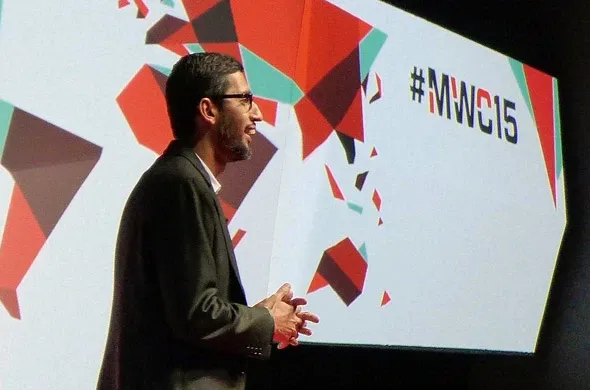Anthropic Signs New US Data Center Power Deal
Energy infrastructure company Hut 8 has entered into a partnership with Anthropic and Fluidstack to build a data center in the US.

Google used the start of its annual I/O conference to highlight its responsibility over the impact of technology on society, unveiling new products that advance health care, limit digital device usage and promote trustworthy news sources, according to Bloomberg.
CEO Sundar Pichai began by ticking off the company’s latest artificial intelligence work in health care. The first demos were focused on tools to diagnose diabetes and predict other medical conditions, plus a Morse code solution for disabled people using Android smartphones.
"It’s clear technology can be a positive force, but it’s equally clear we just can’t be wide-eyed about about the innovation tech creates," Pichai said. "We feel a deep sense of responsibility about how to get this right.
Pichai highlighted different uses of its AI, including systems that help doctors predict medical events 24 to 48 hours before patients get sick. Another feature, called Looking to Listen, upgrades closed-captioning on TV by identifying multiple speakers and transcribing the words for deaf people.
Google CEO offered an alternative to the fear-of-missing-out that tethers people to their devices, calling it the joy of missing out, or JOMO. The company is rolling out new technology that will help users understand their digital habits, focus on what matters, switch off more often and spend more time with their families.
A new Dashboard for Android phones will show how people spend their time with their devices, including how many times they unlock the gadget each day and the number of notifications they get. The system will also remind users to take a break when they’ve been watching YouTube for a long time, for instance. There will be an option to have a single, daily digest of notifications, rather than getting pinged throughout the day. YouTube will be rolling out these features this week, Pichai said, noting that a digital well-being site will launch soon.
Time limits can be set for apps and when they run out, app icons will turn gray. A new gesture code-named Shush switches all notifications off when the phone is placed face down on a surface. With Wind Down mode, users can tell Google’s digital assistant when they go to bed and the system will turn the screen gray, making the device easier to put away.
Google also showed off an updated online news service that highlights quality journalism. "People turn to Google in times of need and we have a responsibility to provide that information," Pichai said. The company is using AI to bring forward "the best of what journalism has to offer," including quality sources that people trust with deeper insights and fuller perspectives, he added.